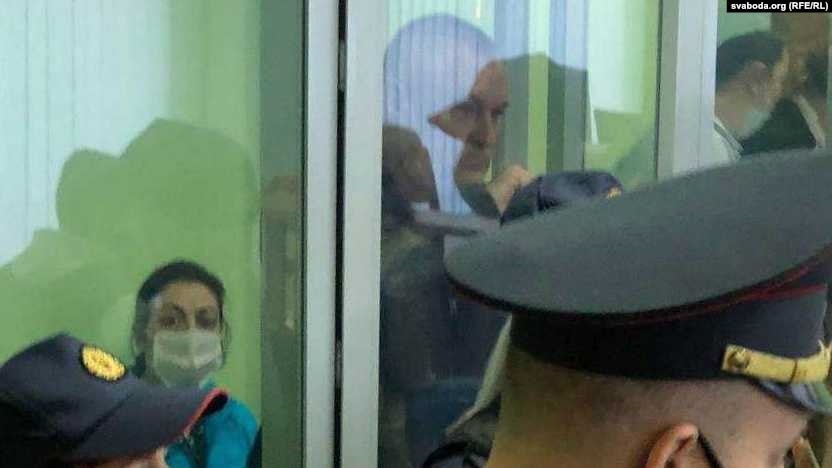Judge orders closed hearings on first day of Viasna trial in Homieĺ

Viasna activists Leanid Sudalenka and Tatsiana Lasitsa in a plastic cage on the first day of their trial in Homieĺ. The photo was taken minutes before the judge ordered to close the hearings and expell all those present from the courtroom. Credit: svaboda.org
The trial of Leanid Sudalenka, Tatsiana Lasitsa and Maryia Tarasenka, Viasna activists in Homieĺ, will be held behind closed doors, the judge ruled soon after the first court session started this morning at the Centraĺny District Court.
The closure was requested by the prosecution who argued that an open trial might disclose “evidence containing bank secrets.” Judge Siarhei Salouski upheld the motion, rejecting the defense lawyers’ argument that the case file does not feature any “secrets”.
The counsels stressed that the alleged secrets could have been protected by classifying only separate sessions, instead of closing the entire trial.
Shortly after the first session opened, Sudalenka’s lawyer said the human rights defender would not be able to take notes during the hearings, after his paper and pen were taken from him. The judge replied that the court could not give instructions to the police officers guarding the defendants, since they are “not subordinate to the court.”
Leanid Sudalenka, head of Viasna’s branch in Homieĺ, was arrested on January 18. Tatsiana Lasitsa has been in custody since January 21. Maryia Tarasenka was briefly detained, but later released, signing an obligation to appear in court.
Among other things, the human rights defenders are accused of helping the victims of political repression, including by paying the fines imposed on peaceful protesters, and arranging a digital security training.

















